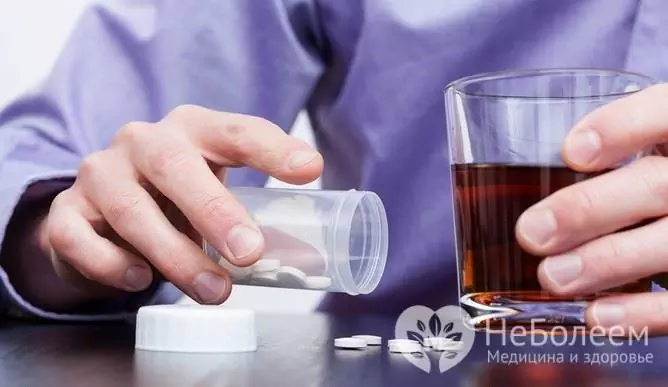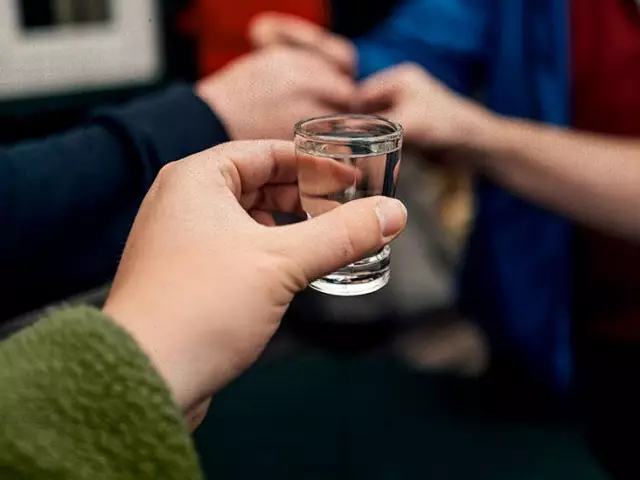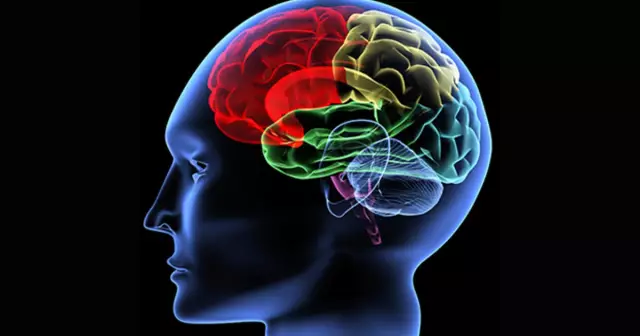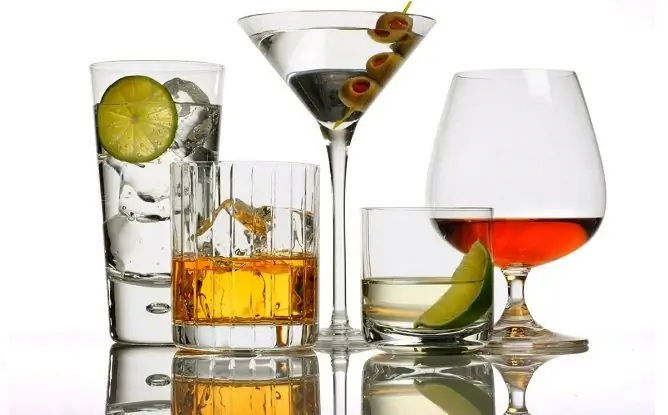- Author Rachel Wainwright wainwright@abchealthonline.com.
- Public 2023-12-15 07:39.
- Last modified 2025-11-02 20:14.
9 myths about alcohol
It's no secret that our country is one of the most "drinkers" in the world. Understanding clearly that the use of strong alcoholic beverages is an extremely harmful occupation, most Russians treat drunkenness with unjustified loyalty. This, apparently, explains the existence of many myths in which the propensity to excessive libation looks almost positive. It is worth familiarizing yourself with the most common of these misconceptions and making sure they are not valid.
Drinking a lot is a sign of health
There is an opinion that someone who knows how to "drink" drinking companions is either a very strong person, or extremely courageous. This point of view has nothing to do with reality. Resistance to alcohol is usually a sign of the second stage of alcoholism. Doctors call this alcohol tolerance. It is not observed in all patients, but if it is present, a person will soon face severe poisoning with the decay products of ethyl alcohol, leading primarily to the development of pathologies of the cardiovascular system. Related problems are the cause of about 30% of sudden deaths among men under the age of 45.

Source: depositphotos.com
Alcohol improves appetite
This is partly true. 20-25 g of strong alcohol, taken 15 minutes before a meal, activate the work of the nervous center responsible for the appearance of hunger. Eating more significant doses on an empty stomach is not only useless, but also dangerous: ethyl alcohol irritates the mucous membrane of an empty stomach and esophagus, which provokes the development of an inflammatory, and then ulcerative process.

Source: depositphotos.com
Taking antibiotics is incompatible with drinking alcohol
There is some truth in this statement. Alcohol really weakens the therapeutic effect of most antibacterial drugs and complicates the recovery of patients who are recommended to take them. In turn, antibiotics increase the effect of ethyl alcohol on the body. In general, heavy intoxication when using such a combination is provided.
But it is much more dangerous to combine alcohol intake with treatment with pain relievers (aspirin, ibuprofen, acetaminophen, etc.), since there is a high risk of damage to the intestinal mucosa.
A person who is not prone to alcohol abuse usually does not have a desire to "wash down" drugs with alcohol. In any case, it is dangerous to combine drinking with therapy.

Source: depositphotos.com
Alcoholism can be cured
None of the modern methods of helping alcoholic patients provide absolute success. There are ways to achieve the cessation of alcohol use with the immediate desire and assistance of the patient, but to bring him to such a state where he is completely independent of the possibility of taking alcohol, and no doctor has ever been able to securely protect him from breakdowns. In this sense, alcoholism should be considered an incurable disease with the likelihood of relapse even after many years of abstinence.

Source: depositphotos.com
Alcohol lowers blood pressure
The minimum dose of alcohol has a relaxing effect on the walls of blood vessels. However, blood pressure largely depends on the heart rate (or rather, on the volume of blood that the heart pumps per unit of time), and drinking alcohol significantly increases this parameter. In addition, many alcoholic beverages contain substances that increase blood pressure. For example, beer, grape wines, and vermouths contain tyramine, while cocktails and liqueurs contain caffeine. The presence of ethyl alcohol only enhances the adverse effects of these components.

Source: depositphotos.com
Drinking alcohol improves sleep
This misconception is based on the fact that small doses of alcohol cause relaxation and slight drowsiness. Meanwhile, a substantial dose of alcohol will lead a person into a state of excitement. He may fall asleep, but the rhythm of sleep will be disrupted and he will not be able to rest normally. On the other hand, alcohol acts as a muscle relaxant, which is very dangerous: people who fall asleep in a state of intoxication usually snore, they often have short-term respiratory arrest. In the absence of self-control, such phenomena can pose a threat to life.

Source: depositphotos.com
Foods that contain alcohol are nutritious
Spirits do not contain nutrients. But they are extremely high in calories: in 1 g of vodka there are at least 7 kcal. These are, in fact, fast carbohydrates that are not absorbed by the cells, but are immediately stored in reserve in the form of subcutaneous fat. Large doses of alcohol have a depressing effect on the nerve centers, which signal satiety, and many snacks consumed with alcohol immoderately whet the appetite. As a result, people who drink often overeat.

Source: depositphotos.com
Drinking can help relieve stress
A very common misconception that often becomes the cause of the development of alcoholism. Small doses of strong drinks (for example, cognac) provoke the release of dopamine ("the hormone of happiness") into the bloodstream, which improves mood, a feeling of vitality and well-being. A short-term euphoria sets in, behind which a person can hide from life's troubles. Unfortunately, it will not work to solve real problems in this way: repeated libations quickly deplete the reserves of dopamine in the body, the negative effects of drinking begin to appear, and the state of health worsens. In addition, people prone to excessive alcohol consumption constantly experience feelings of guilt associated with both their behavior during the moments of alcoholic "eclipse", and with unfulfilled responsibilities and missed opportunities. Therefore, it is not necessary to talk about saving from stress with the help of alcohol.

Source: depositphotos.com
Alcohol does not cause allergies
Only ethyl alcohol itself is practically hypoallergenic. However, the composition of alcoholic beverages (especially low-quality ones) contains a lot of substances that can cause a pathological response of the body. Vodka contains fusel oils, wines and cognacs contain dyes, flavorings, preservatives and polyphenolic compounds, beer contains yeast and hop components. When a painful reaction occurs, ethyl alcohol increases the unpleasant manifestations of allergies.

Source: depositphotos.com
Abuse of any food product does not lead anyone to good. This is more than true for alcohol. It can be taken only occasionally and in very small amounts. It is equally important to carefully check the purchased alcoholic beverages, to choose the products of the most reliable manufacturers with a good reputation and guaranteeing the safety of the goods.
YouTube video related to the article:

Maria Kulkes Medical journalist About the author
Education: First Moscow State Medical University named after I. M. Sechenov, specialty "General Medicine".
Found a mistake in the text? Select it and press Ctrl + Enter.






